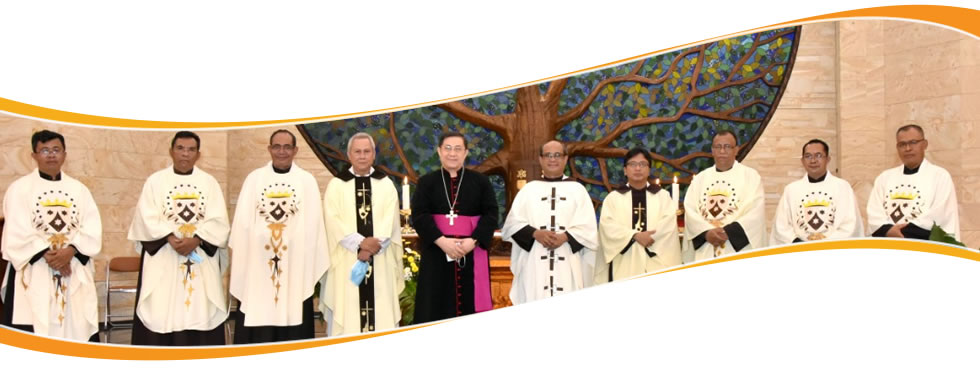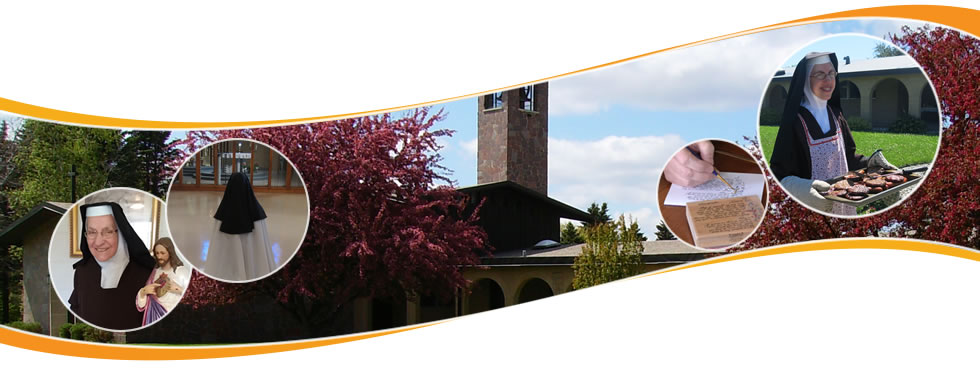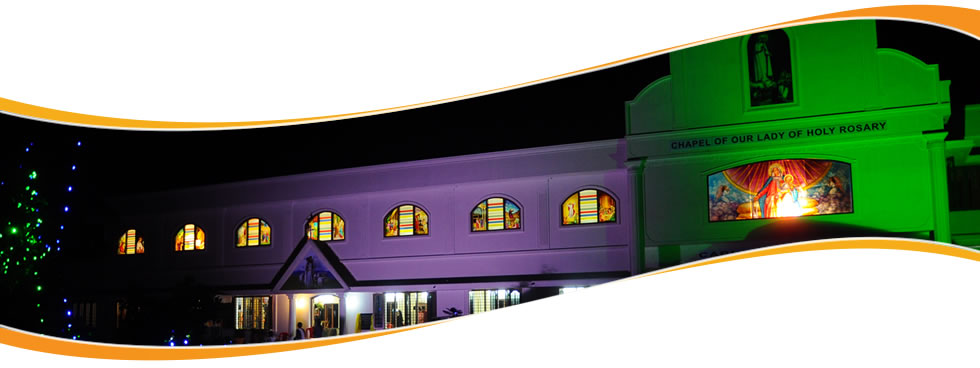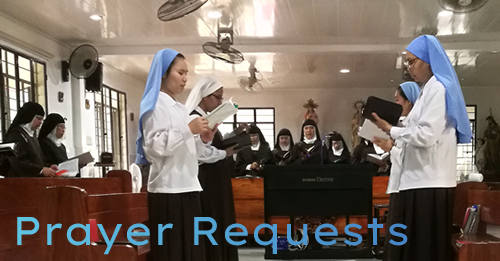 8 May Optional Memorial
8 May Optional Memorial
Information about the Blessed comes from witness statements gathered for the Acts of the 1533 diocesan process for the beatification of Aloysius Rabatà. The Acts do contain, as expected, details about his character, the works he performed, and his death as well as his physical appearance and his eating habits. Five out of eleven witness knew the Blessed personally, so the information is considered quite accurate. Later hagiographies merely repeat that information and give other details that are less cetain to be accurate.
The place and date of his birth continues to be debated. Most claim he was born in Erice (Sicily) in 1443, although one does place his birth in Trapani. Another witness claims his birthplace as Monte S. Giuliano. This, in fact, is considered the most probable since the header of the Acts also mentions this town.
Documentation indicates that Bl. Luigi was prior of the Carmelite community at S. Michele in Randazzo. The town is near Catania, Sicily, at the foot of the volcano Mount Etna. Here he devoted himself to the celebration of Mass and confession of the faithful. He was known for reprimanding, correcting, and giving advice to people. He was described as a man who led a life filled with hardship and fasting. This resulting in him being remembered as having a very lean physique, a pale face, and hollowed out eyes.
While on quest, he often ended up donating the proceeds of his almsgiving as well as the bread collected for the community to the poor. One Easter he preferred to abstain from the meat that the other Carmelites were enjoying, consuming bread and was as usual. Even at the point of death he refused to accept “cakes and other things to comfort him” that some women had brought him.
Rabatà is described as a patient man, peaceful, never given to anger. According to the accounts of two witnesses, Bl. Luigi was questing for the Easter candle when a man cursed and insulted him. Luigi, on the other hand, allegedly showed very great patience and humility, trying to calm the man down and even offering him the money he had so far collected. The Carmelite nuns teased Luigi because of, probably, his simple and poor lifestyle, calling him 'dirty,’ 'petty,' and devoted to taking care of chickens, insults to which he did not respond or which he accepted with humility. He even endured similar insults from the other members of his community. He endured, however, all the negativity with great patience.
Bl. Luigi regularly quested for the monastery. In addition to the daily collection of bread for the community, he visited the most outlying areas of the city. He also devoted himself to collecting money for liturgical needs. It was during one of these questing trips that he was killed. It seems that the Blessed benefited from riding an animal during these days as Rabatà claimed to have received his would by falling off the mule.
From the witness statements, it appears that the Blessed often used the expression “A laudi Dio” (In praise of God), a sign of his humility. Clearly, Rabata's first and foremost preoccupation was spiritual in nature, and all his actions can be traced back to his deep spirituality. One episode recalls that Rabatà continually visited, even in the worst weather, the workshop of a man whose work was to measure out the wine in the bottles. Bl. Luigi was trying to convince the man to forgive the debt of another who was unable to pay. Bl. Luigi was most concerned about the debtor dying without having paid the debt off, thereby compromising the salvation of his soul. Eventually Rabatà succeed, thanks to his insistence and perseverance.
Reading the various testimonies in the Acts of 1533 makes it clear Luigi Rabatà was considered an extremely virtuous man and a saint already during his life. Indeed, there are many references to his “sanctity” and his life filled with the practices of fasting and works of charity. While the intent of the depositions is to confirm the sanctity of Rabatà's life, that does not make them any less authentic. They demonstrate that the eyewitnesses to his life, though they may have had slightly different opinions or levels of conviction about his holiness, they believed him to be holy. That this conviction was widespread is confirmed by the fact that a flourishing devotion to the man can be found at Rabatà’s tomb shortly after his death.
One of the more interesting services Blessed Luigi performed for the community was construction of a road that led from Randozzo to the Carmelite house outside the city walls. Six of the eleven witnesses speak of this project, demonstrating the tremendous impact the project had on the townspeople. Rabatà decided the new road was needed to replace the two roads that were currently used because men were harassing and offending the women who visited the Carmelite monastery. The roads were also long and difficult to navigate. According to witnesses, the new road was built mainly by Rabatà. He invited the help of others, and they generally accepted his offer to get involved. But it was Rabatà who continued to personally carry the blocks of stone used for the construction on his shoulders. He was so involved that one witness claims he interrupted his efforts only for Mass and Office.
The work involved construction of the actual road, the walls, and the clearing in front of the church and monastery. The new road was large and spacious and allowed the women to avoid the risk of “unseemly episodes.”
Of great importance in the 1533 process is the death of the Blessed by a bolzone (an arrow with a rounded tip, shot from a crossbow.). Six witnesses in the Acts give extensive and quite similar testimony. According to the witnesses, his death came as a result of a blow to the forehead from a bolzone while he was questing outside the monastery. The wound inflicted by the arrow caused him to be ill until the end of his life. He alternated days when he just lay in bed and days when he got up and engaged in liturgical services in the church.
The motive for the attack on the Blessed seems to have been envy and retribution for the fact that the Rabatà reprimanded many people. Many asked the Blessed to identify the culprit but fearful that he would be condemned or punished, Rabatà to maintain silence. He claimed he had fallen but this was negated by a doctor who acknowledged that his head wound was caused by an arrow. Some witnesses omit Rabatà’s attempt to disguise the incident as his own doing, focusing instead of the Blesseds refusal to identify the culprit. One witness claims that Rabatà privately admitted to her and her husband to not knowing the attacker’s name.
Rumors circulating at the time placed the blame on a certain Giovanni Antonio Cataluchi, brother of one of the members of Bl. Luigi’s Carmelite community. Cataluchi was supposedly intervening on behalf of his brother who witnesses describe as “the greatest indecorous, evil brother.” He had earlier received a harsh reprimand from Rabatà.
Despite his head wound, witnesses write that Rabatà continued to fast and maintain his previous intense lifestyle. The wound, however, rather quickly caused him to be bedridden. Bl. Luigi made a prediction of his death the day before he died. He urged the women who came to see him not to bring food but to prepare for his death. He possibly also indicated the precise time of his passing as one witness states that the women went to see him the next day “at the time he said,” he actually died.
In 1756 the General Chapter of the Order decreed that the approval of his cult "ab immemorabili" be sought. This was granted on December 10, 1841, by Pope Gregory XVI.
































